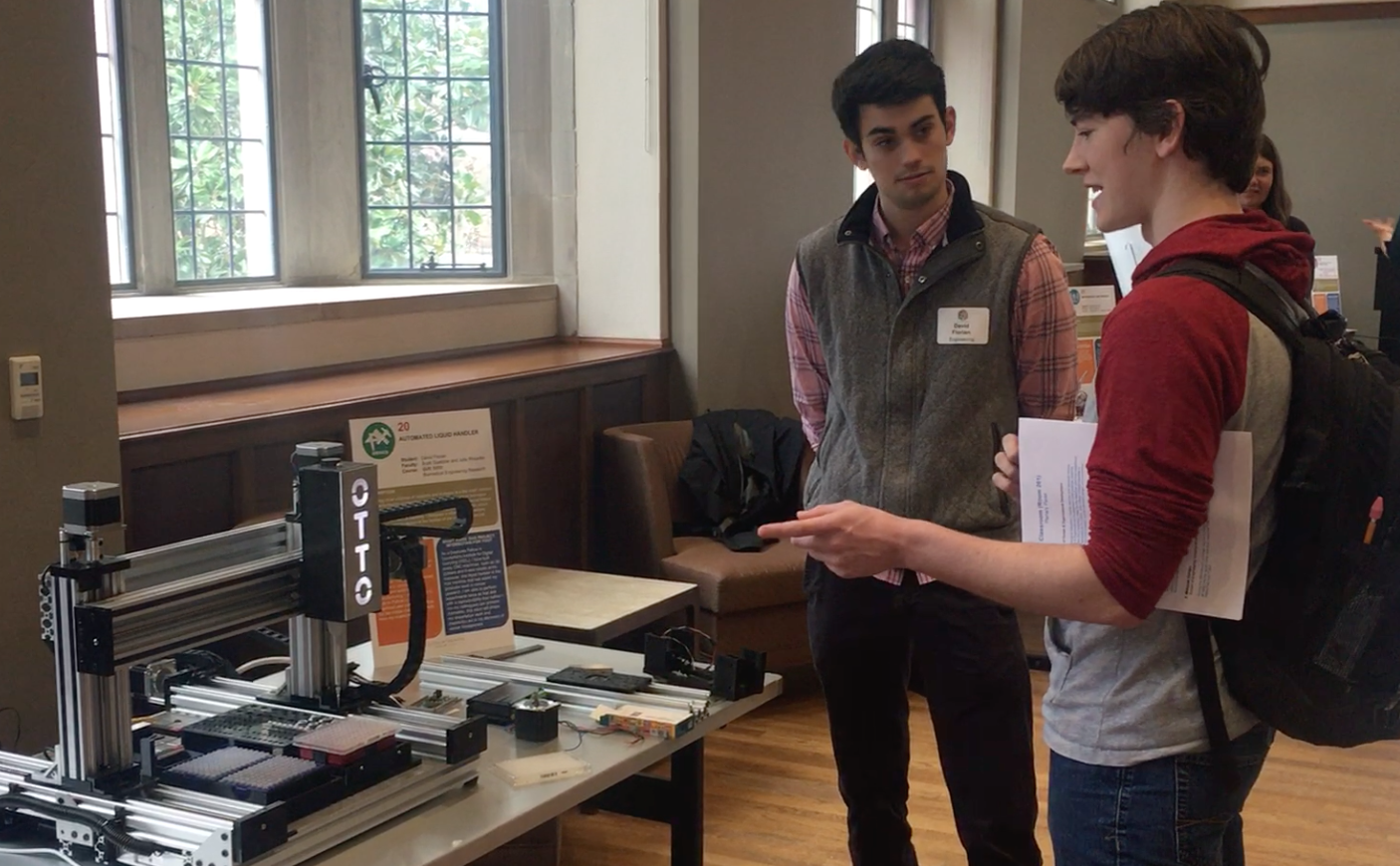Automated Liquid Handler
|
|
Student: David Florian
|
 Project Description
Project Description
Combing small volumes of reagents and biologics is a the most common task performed by a bench-top scientist. Small variations in technique can result in large errors. According to the peer reviewed journal Nature, the majority of scientists believe there is a reproducibility crisis, which can be traced back to pipetting. I designed a robot that can perform common biological assays at the fraction of the cost of commercial options.
What knowledge or skills did you learn?
This liquid handler was constructed from over 50 custom parts that were 3D printed out of plastic or machined out of aluminum. This greatly improved my skills in computer aided design and additive manufacturing. I learned how to code in Python to create a graphical user interface, so that my lab mates could also benefit from my invention.
What made this project interesting for you?
As a Graduate Fellow in Vanderbilt’s Institute for Digital Learning (VIDL), I have built many CNC machines, such as 3D printers and 6-axis robotic arms. However, this liquid handler is the first machine that has aided my graduate work in cancer research. I am able to perform experiments twice as fast and with a reproducibility that neither I nor my colleagues can achieve. Ultimately, this robot will shape my dissertation work and (hopefully) aid in my discovery of cancer therapeutics.
.
.

